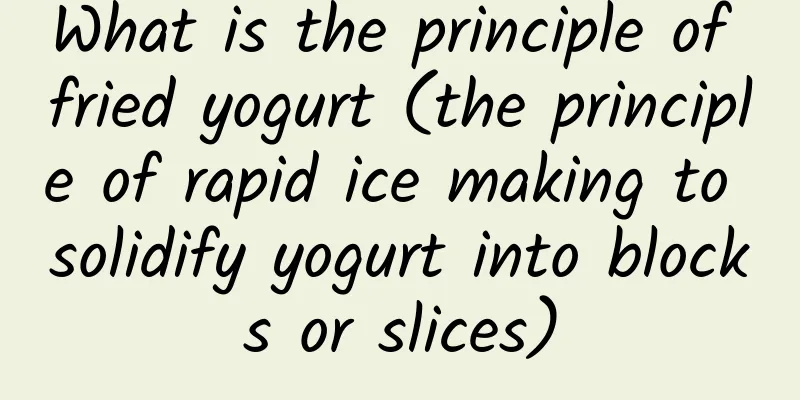Do you know these tips for gargling?

|
Among all oral health care measures, mouthwashing should have the longest history and can be regarded as the most traditional and classic oral health care measure. Therefore, many people have long been accustomed to it. Little do people know that, with the development of medicine today, gargling is no longer just a simple concept like "rinsing the mouth with water". Today we will talk about some of the considerations about gargling. The role of mouthwash Rinsing the mouth can clean both the oral cavity and teeth, but its cleaning power on the latter is definitely much weaker than brushing teeth, so rinsing the mouth cannot replace brushing teeth , but it can be used as a supplement to brushing teeth. In fact, daily oral hygiene measures are the combined application of brushing teeth and rinsing the mouth, and rinsing the mouth is the finishing step after brushing teeth. There are two types of mouthwash: gargling and gargling. Gargling is to use the force of the contraction or relaxation of the lips and cheek muscles and the movement of the tongue to fully stir the liquid (water, saliva or mouthwash) in the mouth, thereby forming a water flow with a certain pressure to play the role of flushing the mouth and teeth; Gargling is a way of gargling that allows the mouthwash to stay in the mouth for a certain period of time, so that the effective ingredients in it can fully contact the mouth and teeth, thereby exerting the corresponding effects of the mouthwash. Therefore, gargling is mostly used when gargling with mouthwash. Three mouthwashes have more than one function Mouthwash not only has antibacterial and anti-inflammatory effects, but can also be used to prevent moths, whiten skin and relieve pain. Its specific functions are related to its ingredients. For example, mouthwash containing essential oils, triclosan, tea polyphenols and other ingredients are mainly used to prevent bacteria and inflammation, and are mostly used to prevent and assist in the treatment of gingivitis and periodontitis; mouthwash containing fluoride has a certain anti-moth effect. It is worth noting that mouthwash with antibacterial and anti-inflammatory effects should not be used as daily care products. How to use the four mouthwash For daily gargling, gargle 2 to 4 times at a time; gargling with mouthwash is mainly used when oral mucosal ulcers occur or before and after periodontal treatment. The dosage is 5 to 10 ml each time, the time is one minute, and gargle 1 to 2 times per hour. The effectiveness of mouthwash is related to the amount of mouthwash used, the strength of gargling, and the number of times you gargle. Five mouthwash plus Among oral health products, there is a tool called a water flosser (or water flosser), which is essentially an upgraded version of mouthwash and can be called mouthwash plus. Although its flushing power is much greater than that of a mouthwash, it is still not the most effective tool for removing dental plaque (the most effective way to remove dental plaque is with friction , such as brushing teeth, using dental floss, interdental brushes, etc.), so it is only used as an auxiliary tool for dental care. But it has a certain effect on reducing gum inflammation. There are actually some rules for gargling your mouth. Have you ever thought about this? |
<<: Breast Cancer: Understanding and Conquering
Recommend
How to treat vulvar dystrophy? Long-term treatment is the key
Vulvar malnutrition can cause symptoms of vulvar ...
The most nutritious way to cook soy products, have you tried it at home?
Many friends ask: I know soy products are nutriti...
Severe hair loss during pregnancy
A woman's body will undergo slight changes af...
Why are the follicles too large to be discharged?
It is a relatively abnormal situation that the fo...
What causes yellow watery vaginal discharge?
For female friends who have symptoms such as yell...
How to avoid joint damage caused by short skirts
When the hot summer comes, those of us who are ca...
Does intramural fibroids affect pregnancy?
Diseases are very common in life, and the disease...
What if you don't ovulate?
Everyone knows that women have an ovulation perio...
What is uterine chocolate cyst?
Uterine chocolate cyst is a disease of endometrio...
What kind of underwear is better to wear after breast augmentation?
Breast augmentation surgery with implants is one ...
Things to note before cervical biopsy
Cervical biopsy is a common medical method. This ...
The most underestimated longevity exercise! Many people exercise wrongly
The World Health Organization defines "healt...
How many months is 17 weeks pregnant
17 weeks of pregnancy, this period should belong ...
Can I have a painless abortion if my embryo is arrested?
Fetal growth retardation actually refers to the p...









